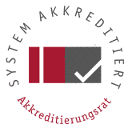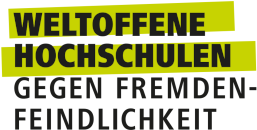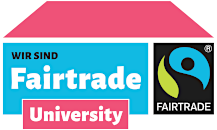- Hochschule
- Hochschule
- Profil
- Aktuelles
- Veranstaltungskalender
- Zentrale Gremien und Leitung
- Fakultäten
- Verwaltung
- Einrichtungen
- Einrichtungen
- Hochschulbibliothek
- Zentrum für Medien und Informationstechnologie (MIT)
- Bild- und Theaterzentrum (BTZ)
- Didaktische Sammlungen
- ForBi
- International Office
- Kompetenzzentrum für Bildungsberatung (KomBi)
- Makerspace
- Professional School of Education Stuttgart - Ludwigsburg (PSE)
- Sprachdidaktisches Zentrum
- LIFT - Ludwigsburger interdisziplinäres Zentrum für Forschung und Transfer
- Zentrum für Literaturdidaktik Kinder Jugend Medien (ZeLd)
- Zentrum für wissenschaftliche Weiterbildung
- Zentrale Ansprechpartner*innen
- Zentrale Ansprechpartner*innen
- Alumninetzwerk
- Campusmanagement
- Datenschutz und Informationssicherheit
- Digital Learning Center
- Gleichstellung
- Hochschulkommunikation
- Nachhaltigkeit und Mobilität
- Personalrat
- Qualitätsmanagement
- Beratung für Behinderte und chronisch Erkrankte
- Sicherheitsbeauftragte
- Strahlenschutz
- Verfasste Studierendenschaft
- Campusleben
- Bauinformation
- Raumkonzepte
- Weltoffene Hochschule
- Angebote für Kinder und Jugendliche
- Studium
- Studium
- Aktuelles
- Veranstaltungskalender
- Vorlesungsverzeichnis
- Studienangebot
- Workshopangebote
- Beratung und Information
- Beratung und Information
- Studieninformationstag
- Fachschaften
- FAQs Studium
- Forschungswerkstatt Bildungswissenschaften (ForBi)
- Informationen für schwangere Studentinnen
- Informationen zum Datenschutz
- Studienabteilung
- Studienberatung
- Internationale Bewerber und Studierende
- Studieren mit Kind
- Studieren mit Beeinträchtigungen
- Soziales, Stipendien und Finanzen
- Sexuelle Grenzverletzung
- Studierenden-Service-Center (SSC)
- Bewerbungsportal
- Bewerbungsportal
- Bewerbung
- Einschreibung/Immatrikulation
- Bewerbungsprozess Lehramts-Master
- Anrechnungsprozess für die Bewerbung in ein höheres Fachsemester
- Studienorientierungstests
- Auswahlverfahren / Grenzwerte
- Aufnahmeprüfungen Kunst Musik Sport
- Sonderpädagogische Fachrichtungen
- Internationale Studierende
- Studieren ohne Abitur
- Studieninteressierte
- Erstsemester
- Studierende
- Studienorganisation
- Studienorganisation
- Rückmeldung
- Formulare zum Studium
- Adressänderung
- Fachwechsel
- Chipkarte
- Exmatrikulation
- Leistungsnachweis BAföG
- Studien- und Prüfungsordnungen
- Studien- und Prüfungsausschüsse
- Studienfinanzierung/ Stipendien
- Gebühren und Beiträge
- Semestertermine
- Übergang LA-Masterstudium
- Studienbescheinigung
- Besondere Erweiterungsfächer
- Lernräume für Studierende
- Prüfungen
- Prüfungen
- Aktuelles
- Für alle Abschlüsse geltende Informationen zu Prüfungen
- Kontakt
- Kontaktformular Anmeldung bzw. Abgabe von Bachelor-/Masterarbeiten
- Lehramtsstudiengänge
- Weitere Bachelor- und Masterstudiengänge
- Online-Modulprüfungs- und Bausteinanmeldung
- Rücktritt / Studieren mit Kind/ Nachteilsausgleich / Formulare / Anrechnungen
- Promotion und Habilitation
- Schulpraxisamt
- Tutor*innen-Programme
- Studieren in besonderen Lebenslagen
- Hochschule für alle
- Nach dem Studium
- UniNow-App
- Forschung
- Forschung
- Ausschreibungen und Stipendien
- Forschungsprofil und Projekte
- Forschungsförderung
- Wissenschaftliche Karriere
- Veranstaltungsangebote für Austausch, Vernetzung und Qualifikation
- Gremien und Ausschüsse
- Gremien und Ausschüsse
- Forschungsausschuss
- Ethikkommission
- Kommission zur Untersuchung von Vorwürfen des Fehlverhaltens in der Wissenschaft
- Vertrauenskommission Transparenz in der Drittmittelforschung
- Fakultätsübergreifende Evaluationskommission
- Vergabekommission für Stipendien nach dem LGFG
- Ombudspersonen für Promotionsverfahren
- Promovierendenkonvent
- Team
- Weiterbildung
- International
International Lecture Series: Learning in multilingual and multicultural contexts – impact on teacher education.
In the upcoming Winter Semester 23/24, the INVITE project will be hosting a Lecture Series at Ludwigsburg University of Education on the topic of "Learning in multilingual and multicultural contexts".

Kontakt
Pädagogische Hochschule
Ludwigsburg
Reuteallee 46
D-71634 Ludwigsburg
Ludwigsburg
Reuteallee 46
D-71634 Ludwigsburg
Postanschrift:
Postfach 220
71602 Ludwigsburg
Postfach 220
71602 Ludwigsburg













